Misterio (2013)
Gênero : Ficção científica
Runtime : 11M
Director : Chema García Ibarra
Sinopse
They say that if you put your ear to the back of his neck, you can hear the Virgin talk.

Bert Haanstra paints a portrait of The Netherlands and the Dutch, in his own unparalleled manner. Partly with the aid of a hidden camera he observes people in the most diverse situations. He shows the unusual in the usual and the usual in the unusual. The harsh years of the post war era of reconstruction have passed and for most people life is better than before.
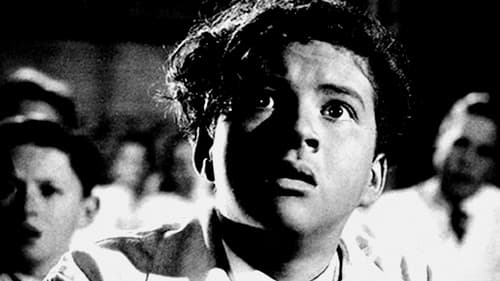
While committing a prank, a child accidentally discovers the identity of the criminal who keeps the whole neighborhood on alert. For fear of being punished, he does not tell what he knows to his father, a police officer.

The first part of this documentary deals with the Portuguese neurologist António Egas Moniz, Nobel Prize for Medicine in 1949, one of the first surgeons to apply the technique called lobotomy for the treatment of schizophrenia. The second part deals with the everyday life of people with schizophrenia today: behavior and relationships, and treatment for the disease.

A Trip Down Memory Lane is a 1965 experimental collage film by Arthur Lipsett, created by editing together images and sound clips from over fifty years of newsreel footage. The film combines footage from a beauty contest, religious procession, failed airflight, automotive and science experiments, animal experimentation, skyscraper construction, military paraphernalia, John D. Rockefeller and scenes of leisure, Richard Nixon and scenes of war, blimps and hot air balloons, and a sword swallower. Lipsett envisioned his film as a kind of cinematic time capsule for future generations.

Ming of Harlem: Twenty One Storeys in the Air is an only-in-New-York account of Ming, Al, and Antoine Yates, who cohabited in a high-rise social housing apartment at Drew-Hamilton complex in Harlem for several years until 2003, when news of their dwelling caused a public outcry and collective outpouring of disbelief. On the discovery that Ming was a 500-pound pound Tiger and Al a seven-foot alligator, their story took on an astonishing dimension. The film frames Yates’s recollections with a poetic study of Ming and Al, the predators’ presence combined with a text by philosopher Jean-Luc Nancy, reimagining the circumstances of the wild inside, animal names, strange territories, and human-animal relations.

Title cards introduce images we watch without narration; they are displays of shape and color. François de Roubaix's electronic music accompanies these images, photographed under a polarizing microscope. The crystals appear to move like tiny organisms: small four-part fans share the frame with flowing lines of pink. Multiple patterns appear side by side.

Inhabitants depicts animals in panic: the film is mostly filled with shots of mass migrations and stampedes (some, surprisingly, filmed from a helicopter). The title equalizes the species of the earth. Artavazd Peleshian merely alludes to the presence of human beings—a few silhouettes that seem to be the cause of these vast, anxious movements of animal fear. In many ways, this film is an ode to the animal world that moves toward formal abstraction, with clouds of silver birds pulverizing light. Peleshian said, “It’s hard to give a verbal synopsis of these films. Such films exist only on the screen, you have to see them.”

The film centers on an unusual photograph dating back to the 1930s. An investigation of its particulars reveals a tapestry of secrets hidden in the details, and a tale of kidnapping and murder captured in a haunting moment.

Poetic essay about the beginning of life from labor pains and birth and about its symbolic meaning.

In 1952, Haanstra made Panta Rhei , another view of Holland through the eyes of a painter and filmmaker. Its poetic images of water, skies and clouds reflect Haanstra's own moods.

Accompanied only by music the film alternates between shots of pilgrims near the tomb of Saint Sergei in Sergiyev Posad, Russia and pilgrims at the Basilica of Guadalupe in Mexico.
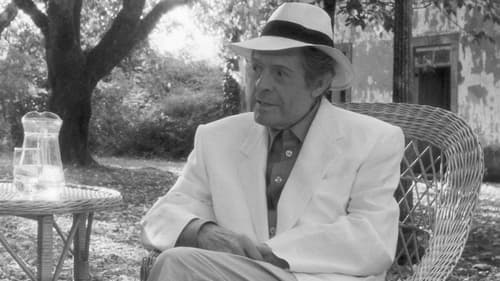
In 1996, Marcello Mastroianni talks about life as an actor. It's an anecdotal and philosophical memoir, moving from topic to topic, fully conscious of a man "of a certain age" looking back. He tells stories about Fellini and De Sica's direction, of using irony in performances, of constantly working (an actor tries to find himself in characters). He's diffident about prizes, celebrates Rome and Paris, salutes Naples and its people. He answers the question, why make bad films; recalls his father and grandfather, carpenters, his mother, deaf in her old age, and his brother, a film editor; he's modest about his looks. In repose, time's swift passage holds Mastroianni inward gaze.
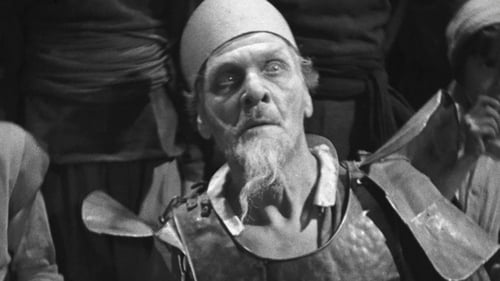
Inflamed by his readings of chivalric novels, Don Quixote, a knight with a sad face, accompanied by Sancho Panza, a peasant steeped in common sense, decides to set off across the world in search of improbable adventures.

Pedro and Julian, two friends entomologists are in love the same woman, Adela, who decides to marry Peter. Julian attends the marriage, but acts against women as her own husband. The passion that unites the two friends, entomology, leads them to conclude a treaty. The woman, however, is not comfortable with the life she has lived and want to abandon them. Discovered that she suffers from the disease, makes men willing to please her in everything, without her knowing the reason for his change of attitude.
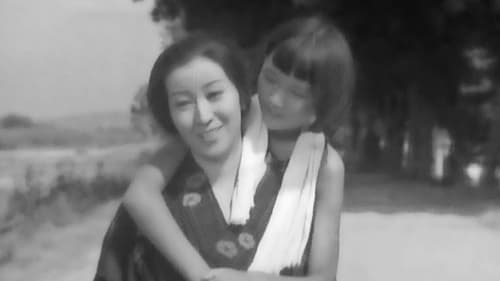
Two young girls, Nobiko and Tomiko, go to the same school. The less fortunate girl Nobiko is one of the top students, while the rich girl Tomiko is not. At one time Tomiko's father was quite fond of Nobuko's mother.

"The strangeness of this film is laced with carefully moulded apocalypses as the filmmaker explores a vision of life beyond death – the Elysian fields of Homer, Dante’s Purgatorio, de Chirico’s stitched plain. A moving single picture. Evolving the structure or script for the film involved a process of controlled hallucination, whereby I sat quietly without moving, looking at the background until the pieces began to move without my inventing things for them to do. I found that, given the chance, they really did have important business to attend to, and my job was to furnish them with the power of motion. I never deviated from this plan." —Canyon Cinema
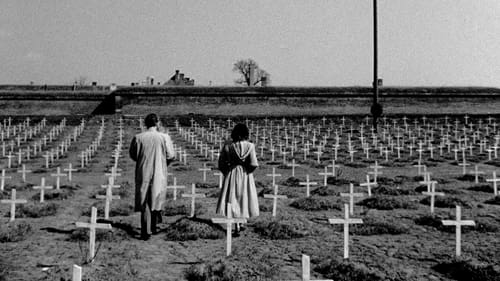
Prague, during World War II. Hana Kaufmann, a Jewish ophthalmologist, marries Dr. Antonín Bureš, a Christian man. When her family is sent to the Theresienstadt concentration camp, their romance turns into a struggle for survival.
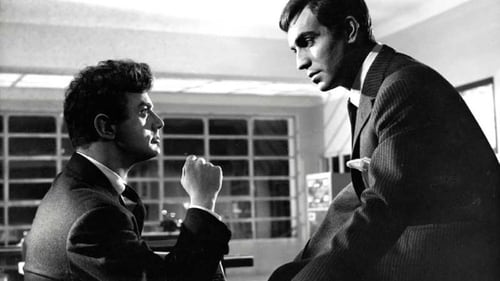
Alfredo is a cheerful party animal, son of a wealthy man. Alfredo's brother, a young very focused and mature boy, and their father try unsuccessfully to change the profligate lifestyle of Alfredo to remedy the dissolute life of the latter, which, by all indications, is clearly gay.

BOSTON FIRE finds grandeur in smoke rising eloquently from a city blaze. Billowing puffs of darkness blend with fountains of water streaming in from offscreen to orchestrate a play of primal elements. The beautiful texture of the smoke coupled with the isolation from the source of the fire erases the destructive impact of the event. The camera, lost in the immense dark clouds, produces images for meditation removed from the causes or consequences of the scene. The tiny firemen, seen as distant silhouettes, gaze in awe, helpless before nature’s power.
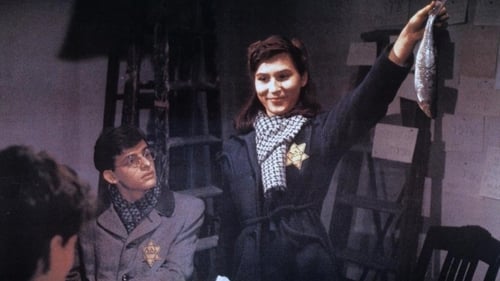
Although members of the Hitler Youth chant anti-Semitic paroles in front of his house during the Purim festival, Rabbi Singer is still profoundly convinced that Germany will stay a safe country for him, his family, and his fellow believers. But several years later, his son David is banned from going to school because he is a Jew. Shortly after, Rabbi Singer and his wife are deported. Now, young David also fears for his life. In constant fear of being detected, he tries to find a way to leave Germany.


















